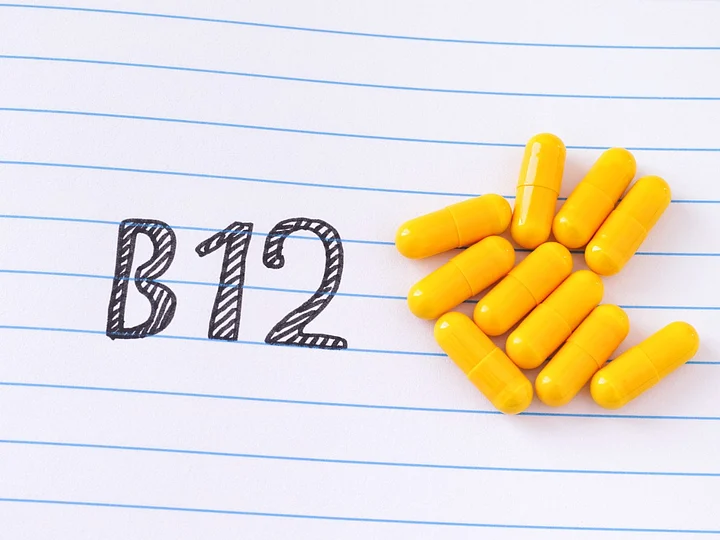Vitamin B12 helps body make DNA and red blood cells. Since body doesn't make vitamin B12, one has to get it from animal-based foods or from supplements. And one must ensure doing this on a regular basis. While B12 is stored in the liver for up to 5 years, one can eventually become deficient if their diet doesn't help maintain the levels. The answer depends on things including your age, your eating habits and medical conditions, and what medications you take.
The average recommended daily amounts of Vitamin B12 vary by age, eating habits and medical conditions, and what medications one takes. One can get their vitamin B12 in animal foods, which have it naturally, or from items that have been fortified with it. Animal sources include dairy products, eggs, fish, meat, and poultry. With age, it becomes harder to absorb Vitamin B12. It also happens if you had weight loss surgery or another operation that removed part of your stomach, and also if you drink heavily.
Vitamin B12 Deficiency: Symptoms
If you have vitamin B12 deficiency, you could become anemic. A mild deficiency causes no symptoms. But if untreated, it leads to symptoms like:
Weakness, tiredness, or lightheadedness
Heart palpitations and shortness of breath
Pale skin
A smooth tongue
Constipation, diarrhea, loss of appetite, or gas
Nerve problems like numbness or tingling, muscle weakness, and problems walking
Vision loss
Mental problems like depression, memory loss, or behavioral changes
Vitamin B12 Deficiency Causes
Even after including enough vitamin B12 in the diet, there are many underlying health conditions that affect the absorption of vitamin B12 in the gut like digestive conditions, autoimmune conditions, diabetes, genetic conditions, chronic pancreatic disease, pernicious anemia, vitiligo, etc. There were also other factors that lead to a vitamin B12 deficiency which include drinking excessive amounts of alcohol or using certain drugs, such as some heartburn medicines and metformin.
Vitamin B12 Deficiency: Treatment & Prevention
Most people get enough vitamin B12 from their dietary sources but for those who cannot, doctor does prescribe or recommends B12 supplements. People take B12 supplements in the form of oral tablets, sublingual tablets that dissolve under the tongue, or injections. People who have trouble absorbing vitamin B12 may need shots of the vitamin to treat their deficiency. A doctor advises people on the best way to prevent vitamin B12 deficiency, depending on their dietary choices and health.
(At The Quint, we question everything. Play an active role in shaping our journalism by becoming a member today.)
